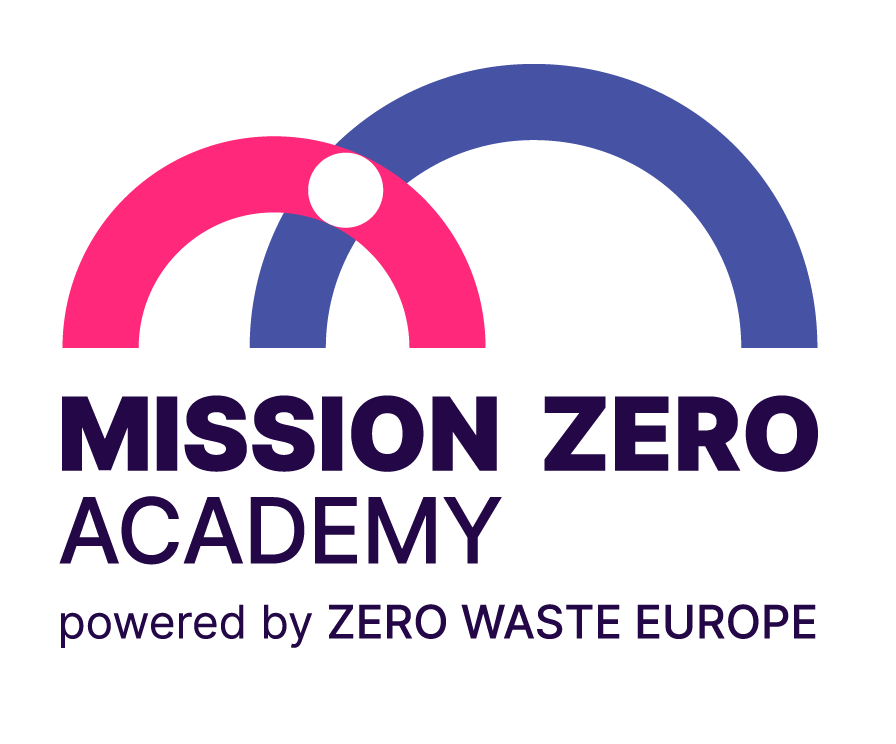Since the development of modern industry and economies, we have never lived through a time when more people recognise the importance of changing our way of life in order to protect the planet.
Yet despite this increased awareness, the major causes of climate change and biodiversity loss continue at a rapid pace that is simply unsustainable.
Local zero waste strategies represent one side of the coin and can play a crucial role in helping fight climate change worldwide.
The related effects are wide-ranging and span the entire lifecycle of materials and products. Let’s just think about the implementation of a circular system that increases reuse and subsequently reduces consumption use, preventing the generation of vast amounts of GhG emissions in the extraction and manufacturing of products. This is particularly true for plastics, which are produced almost entirely from chemicals sourced from fossil fuels. Waste and litter that is killing our oceans are also major contributors to climate change, reducing the ability of our oceans to maintain their roles as carbon sinks.
Cities implementing zero waste strategies will see the volume of waste sent to either landfill or incineration dwindle as a result of their policies, with less GhG emissions and potentially great benefits for our climate.
In addition, once organic waste is collected and treated properly through composting or anaerobic digestion, we will witness a vast reduction in methane emissions from potential landfill sites. Similarly, incineration and even so-called “sustainable” methods that burn waste for energy have just as negative an impact on our environment (due mainly to the energy needed for such processes, the resulting emissions and the treatment of the ash and discards post-incineration).
Fortunately, decision-makers are beginning to realise the incompatibility of incineration and our climate goals. For example, there have been a number of recent funding and policy developments within the EU that showcase how decision-makers no longer view waste incineration as sustainable, giving its high climate impact and subsequent lock-in effect for the continued generation of waste.
On the other hand, our leaders have made grand promises so far that have not been backed up by meaningful action. This must change, and it must change now.
Two key summits happening at the end of the year will provide world leaders with the perfect opportunity to turn the tide and start building a world that lives in harmony with nature – the UN biodiversity Conference in China this October, followed by COP26 in Glasgow a month later.
Leading up to COP26 this year, Mission Zero Academy (MiZA) has worked, together with the non-governmental organisation Zero Waste Europe (ZWE), to contribute towards the Human Settlements Pathway on Waste and Consumption, one of the Climate Action Pathways of the Marrakech Partnership Global Climate Action (MPGCA).
The Marrakesh Partnership is an important mechanism to strengthen collaboration between governments and non-party stakeholders in the lead up to the COPs, and is a key process of the United Nations Framework Convention on Climate Change (UNFCCC).
MiZA’s and ZWE’s contributions helped develop two key documents that structure the work in the Human Settlements Pathway, respectively the Executive Summary and the Action Table.
The Action Table specifically provides a comprehensive list of practical examples and solutions for national governments to utilise in order to meet the goals of the Paris Climate Agreement.
Within the Human Settlements Pathway, with the help of MiZA and ZWE, zero waste cities were identified as a key vehicle for governments to adopt in order to bring an impactful change towards creating more sustainable urban areas.
The Action Table identifies key goals for 2025, 2030 and 2040 related to zero waste that can help comprehensively reduce the amount of GhG emissions omitted, disaggregating these actions into key stakeholder groups that are responsible for setting and achieving these targets:
- Policymakers (national, subnational, local levels)
- E.G. Total waste generated within the community / region is 50% less in 2040 than it was in 2020
- Financial Institutions
- E.G. Ensure no funding is provided that extends or renews the capacity of environmentally harmful disposal methods (landfill, waste-to-energy incineration) by 2030
- Technology Providers and Innovators
- E.G. Develop new and promote existing circular solutions that allow materials/products to be reused rather than disposed of
- Business and Service Providers
- E.G. Adjust existing business models or implement new models that are closed-loop, through deposit returns or reverse logistics & collection by 2025
- Civil society
- E.G. Convene stakeholders (alongside local government) at the local level to stimulate collaboration around circular economy opportunities
It is more and more evident that there is now a critical opportunity to embedding zero waste as a recognised tool for governments to use within broader net-zero and climate mitigation plans.
This is why the Zero Waste Cities Certification provides points to those municipalities which calculate and account for GhG emissions within their zero waste strategies.
In order to do so, MiZA will soon launch a new, exciting service – a Carbon Calculator – for European municipalities. The tool will be able to calculate the GhG emission savings from waste prevention policies, such as reusable nappies or deposit refund schemes for refillables, going beyond just waste management calculations for the first time.
The Carbon Calculator is the first of its kind and will be exclusively available for MiZA partners and cities which are part of the Certification programme. The use of the tool, as part of the wider Certification process, will help ensure local waste and GhG emission reduction strategies are data-driven, community-centred and meaningfully impactful.





